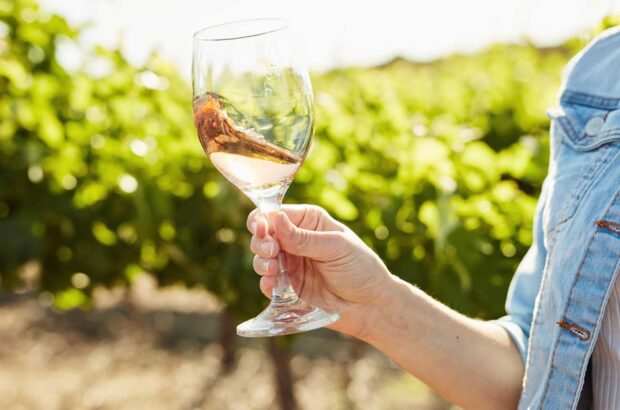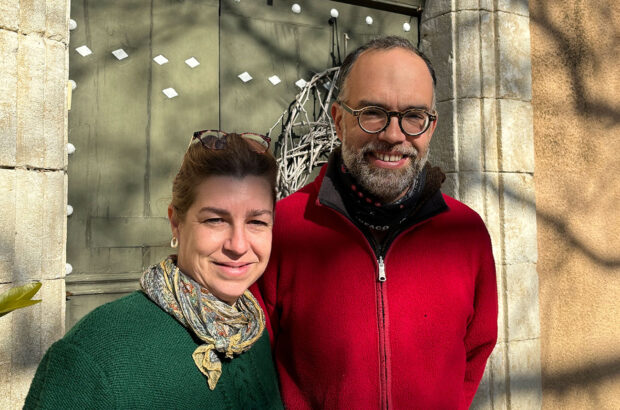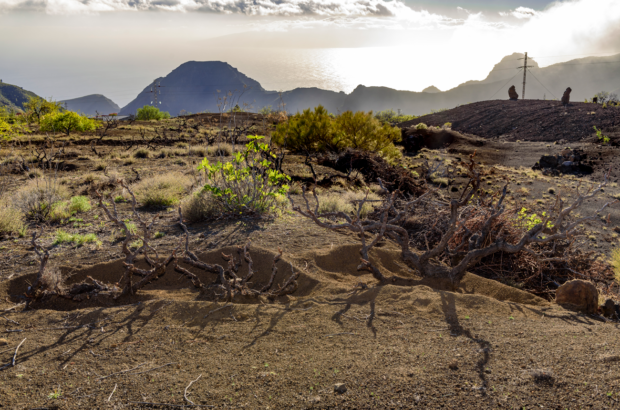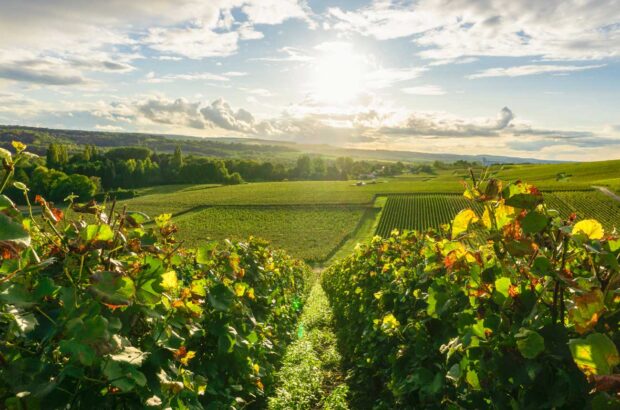Le Domaine Skincare features a serum, a cream, a fluid cream and a cleansing emulsion, all of which are vegan and suitable for all skin types.
The products are made from organic matter that was previously discarded after the grapes had been pressed. Le Domaine Skincare’s packaging also includes recyclable glass bottles and jars, and reusable stoppers made of oak cut from the scraps of the vineyard’s wine barrels.
‘It is about imitating nature’s organic cycles, its original beauty,’ said Pitt, whose credits include Fight Club, Se7en and Once Upon a Time in Hollywood. ‘In nature, there is no concept of waste. Every discarded thing becomes nourishment for another. This is circularity for Le Domaine Skincare.’
Pitt’s first foray into the wine industry came in 2011, when he and his wife, Angelina Jolie, purchased Château Miraval in Provence for a reported $67m.
A mutual friend introduced them to the Perrin family, long-term owners of Château de Beaucastel in Châteauneuf-du-Pape, and the Perrins have been making Château Miraval’s popular rosé wines ever since.
Fans of the brand were concerned that the demise of the Jolie-Pitt marriage would end the flow of rosé, but Château Miraval is still going strong.
Pitt sued Jolie in February, claiming she illegally sold her shares in Miraval to Tenute del Mondo – the wine division of Stoli, owned by Russian billionaire Yuri Shefler – without his knowledge or consent.
Earlier this month, Nouvel – an investment firm founded by Jolie – counter-sued Pitt, seeking a jury trial and compensatory damages of at least $250m after accusing him of intentionally devaluing Miraval.
That legal battle looks set to rumble on, but Pitt is still working closely with Famille Perrin.
They teamed up to create Le Domaine Skincare, which will launch at high-end beauty retailers in France, the UK, Italy, Germany, Switzerland, Benelux and the USA next month. Prices will range from £60 for the cleansing emulsion to £290 for the serum.
The products use two patent-pending active ingredients – GSM10 and ProGR3 – that Famille Perrin developed in collaboration with Professor Pierre-Louis Teissedre of the University of Bordeaux and Professor Nicolas Lévy, who works for a biotech company called ProGeLife.
Teissedre has spent the past 15 years characterising Chateau de Beaucastel’s 13 grape varieties to identify the combination with the most potent antioxidant effects. The result is GSM10.
Lévy specialises in novel causes of human ageing and skin ageing. His team at ProGeLife, a biotech company focused on developing medicines for rare diseases, created ProGR3 in partnership with Pitt and the Perrins in a bid to slow down the effects of ageing mechanisms.
The aim is to set a ‘new pinnacle for antioxidant efficacy within beauty’.
Château de Beaucastel is by no means the first winery to produce a cosmetics brand, as it follows in the footsteps of Caudalie, developed at Château Smith Haut Lafitte in Bordeaux.
Pelegrims, a skincare brand from Westwell vineyard – a wine producer near Ashford in Kent, England – also hit the market last year, billed as an ‘exceptionally potent, antioxidant-rich skincare, designed to rejuvenate, repair and replenish the skin’.






